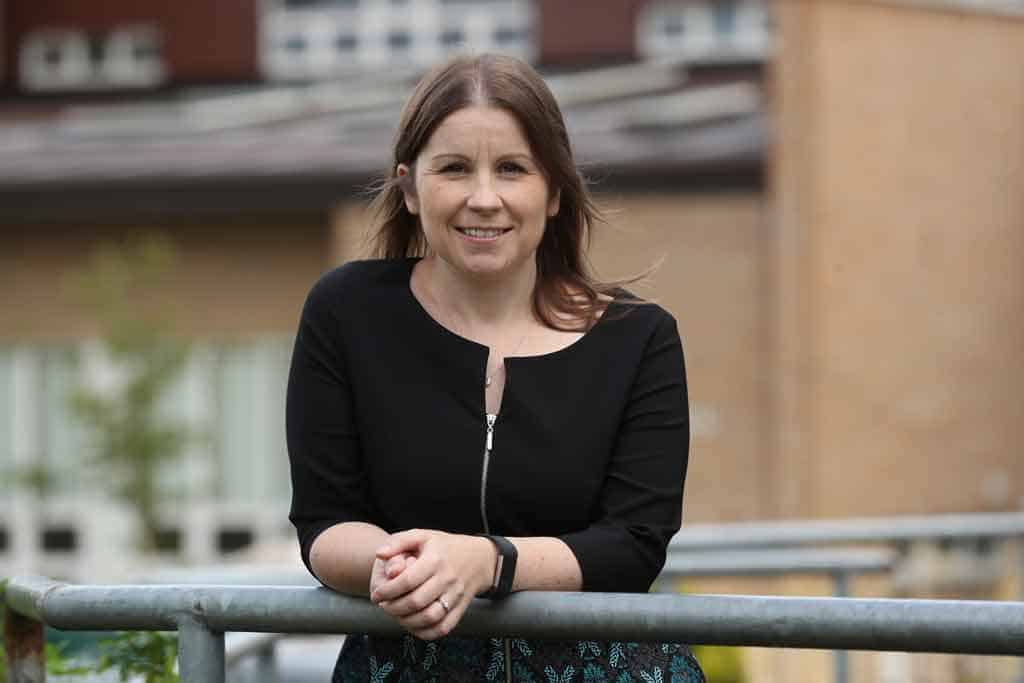Maebh Mullany, Chief Executive, Rutland Centre
In our next CEO Q&A, Maebh Mullany, Chief Executive, Rutland Centre speaks to us about becoming self-sustainable, balancing the finances and looking to the future.
My main priority for Rutland is to enhance the business model so that we have a self-sustainable organisation that will be able to continue to help people long into the future. We are celebrating 40 years of service this year and as an organisation we’ve achieved so much in that time – it’s up to me now to drive it on and help Rutland become the best that it can be. The nature of the work that the team does at the Rutland can be very challenging and also unpredictable. We don’t have a tangible product to sell and it is difficult therefore to measure demand or identify patterns. Because we are dealing with families in turmoil, we don’t have much insight into how and when they are going to pick up the phone. However, the Rutland Centre’s name is very well known in addiction treatment in Ireland and we make sure to keep our name out there so that people can avail of our services when they need them. Like any organisation, there is also a business function at the Rutland Centre. We need to pay the bills and our team in order to ensure we can deliver the high-standard of care that our clients expect. Like any business, balancing the finances with the service delivery can be a challenge at times. I’m extremely lucky that the team at Rutland are all so dedicated and passionate about their work that it definitely makes my job a bit easier. I wouldn’t like to take that for granted however so for me it’s about knowing what’s going on with your team members and responding. I like to keep in touch with my team members so I can see something coming down the line and head it off at the pass. The work we do is all about building relationships and I think that if you have a relationship with your team, if you’re upfront, approachable, and lead by example, this keeps the whole show on the road. The entire charity sector is becoming ever more compliance focussed. I really welcome this because as employees we are just custodians of the services we work in. However, it does and will continue to have a growing impact on how we do things. I think smaller charities are struggling to deal with the increasing demands and the resources needed to meet them all. In terms of addiction and our own sector, I think we still have a lot of work to do to reduce stigma associated with addiction and to help families in need to reach out for assistance. We know from 40 years’ experience that there isn’t a community in Ireland who hasn’t dealt with addiction and yet we don’t talk about it enough. At a policy level I’d like to see more of a focus on Recovery and making sure that people who need treatment can access it. Obviously the one trend that we want to see is that addiction is on the decrease and that people don’t need us but unfortunately, we’re a long way from that. Alcohol is still the number one addiction we deal with and we have seen increases in presentations for gambling addiction over recent years as well as the number of younger people entering treatment. Back when we first opened, 40 years ago, people came to treatment for alcohol only, or drugs only. Today people are presenting for treatment with multiple addictions and so the work is becoming more complex both for people themselves and for our clinical practitioners. I am really passionate about pushing for the gambling industry to be regulated. It does not sit well with me that an industry can create and sell such a harmful product that devastates families all over the country day in day out, and they are accountable to no-one. The Government haven’t legislated, nor do they invest in providing treatment services and meanwhile the industry is making extraordinary profits. The balance here is all wrong! Our recent experience is that candidates for jobs are extremely highly educated but have little practical experience. Some of the CVs we get are so impressive but the bar is being pushed higher and higher all the time. I think that must create difficulty for those who don’t have the same education opportunities. I took over here at Rutland Centre in 2015 and we were still feeling the effects of the recession at that time. It has meant however that we’ve had to work really hard since then to develop new referral pathways so that we are not overly reliant on one income stream. 99% of our clients are Irish and living in Ireland so I don’t think it will affect us that way. The main issue for us is the uncertainty that Brexit poses. For example, if the economy and consumer confidence slumps and health insurance policies are cancelled, we will feel the effects of that at the Rutland Centre. We need to wait and see what, if any, policy implications emerge also. Will Brexit change our health policy for example or how we tackle addiction? Will there be any impact on legislating for gambling or alcohol regulation? At the moment it’s very uncertain. For me personally, success is about finding a role and an organisation that I’m passionate about. This drives me to work hard and also makes sure that I am happy while at work. I also have a good balanced life outside of work which helps put perspective on things. I enjoy a challenge and so for me success is about not being afraid to try out new roles. Be yourself – but love what you do! It’s a luxury to love your work and not everyone has the opportunity to move or try new things but life’s too short to work somewhere where you’re frustrated or unhappy. Surround yourself with positive people. If you’re leading a team make sure that you put together the strongest team that you can. It’s impossible to do everything yourself and so you need to know that you can rely on the people around you – and they need to know that they can rely on you! A couple of years ago we started an awareness campaign which we now run every September called Recovery Month. We’ve had some really great events and experiences especially in 2017 and I really believe that we are getting our message out to those who need us. We saw greater numbers of people come through our service in 2017 and the results coming back from those who have used our service are very positive. This creates stability and confidence amongst the whole team. I think for now it’s steady as she goes – keep doing what we’re doing and building momentum. I can see a lot of developments in the addiction area happening in 2019 and I think we’ll be faced with a very different challenge around capacity and resources. I hope we’ll finally be looking forward towards a vision, asking ourselves what and where do we want to be! I would like for the Rutland Centre to engage in fundraising as this isn’t an activity we undertake proactively at the moment. Addiction is something which affects communities and most families throughout the country and our experience is that people who have been there or are now in Recovery, want to give something back and support others. If we can invest in good structures and good people I think we can augment and support our service with this type of activity. The Rutland Centre name is well known throughout Ireland for addiction treatment. I would like the Rutland Centre’s name to be synonymous with ‘Recovery’. We would like to treat as many people as we can so that they can avail of the best clinical program and live their lives in Recovery. The business of Rutland only exists to support the delivery of the service. Everything that we do has to link back to this – how can we help the people and families who come to us. That is why we are here.Q. What are your main priorities and goals in your role?
Q. What are your biggest challenges as CEO?
Q. How do you keep your team/staff motivated?
Q. What are the challenges facing the industry going forward?
Q. What new trends are emerging in your industry?
Q. Are there any major changes you would like to see in your sector?
Q. As an employer are you finding any skills gaps in the market?
Q. How did your strategy develop in the context of the banking crisis and economic crisis?
Q. How will Brexit affect you, or have you started to feel the effects already?
Q. How do you define success and what drives you to succeed?
Q. What’s the best advice you’ve been given, or would give, in business?
Q. What have been your highlights in business over the past year?
Q. What’s next for your company?
Q. What opportunities or plans for growth do you see in 2018?
Q. Where do you want your business/brand to be this time next year?
It’s a luxury to love your work and not everyone has the opportunity…
Business & Finance, CEO Q&A
 The Sales Institute is delighted to support the CEO Q&A, highlighting the very best in Irish Leadership.
The Sales Institute is delighted to support the CEO Q&A, highlighting the very best in Irish Leadership.
For further details, see www.salesinstitute.ie





